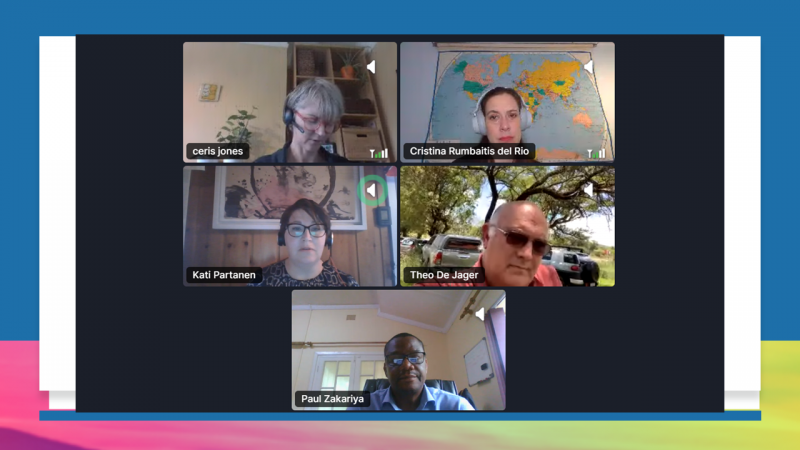Farmers’ response to the shifting need in building sustainable and resilient food systems
Yesterday, December 10, within the framework of the Planetary Emergency Partnership conference “STEP into a Better World: A call to action” (9-10 December), the World Farmers’ Organisation (WFO) hosted a one-hour session titled “Design a farmers-oriented pathway for resilient food systems”.
Moderated by Ceris Jones, Climate Change Adviser, NFU UK, and WFO Climate Change Working Group Facilitator, the discussion featured the participation of Theo de Jager, President, World Farmers’ Organisation; Cristina Rumbatis del Rio, Action Track Co-Manager, Global Commission on Adaptation, World Resources Institute (WRI); Kati Partanen, Farmer and Board Member, Central Union of Agricultural Producers and Forest Owners (MTK), and WFO Women Committee Facilitator; Paul Zackariya, Farmer and Executive Director, Zimbabwe Farmers’ Union (ZFU), and WFO Value Chain and Livestock Working Group Member.
The event aimed at highlighting how important it is to rely on the agricultural sector and farmers as drivers of change, engage them in multi-stakeholder debates and partnerships to ensure that the sustainability and resilience of food systems are built through farmers-oriented and cross-sectoral approaches.
All participants played their part contributing to a pragmatic and visionary set of collaborative solutions to drive substantial change and promote resilience.
“We, as farmers, want to be right in the centre of actions for sustainable and resilient food systems, and we are ready to be there. Never before we had unity on what needs to be done and what we need to do. 2021 will mark the year in which we really design in a branded-new way how we crop our pasture. But none of us can win the battle on our own. This planet belongs to everybody, and we need to have a game plan!”, stated Theo de Jager during his speech.
This year the outbreak of the COVID-19 pandemic has shown even more how food systems are diverse, complex, and interlinked. While climate change-induced disasters are increasing and the pandemic has exacerbated social and economic inequalities, we need to cope with the challenge of sustainably producing food for an increasing population, also paying attention to issues like food loss and waste and biodiversity conservation.
Agriculture is a central sector in the food systems debate. Farmers play a key role in keeping soils healthy, contributing to climate change adaptation and mitigation, producing and delivering safe, healthy and nutritious food. Farming is also about managing risks and building resilient livelihoods both for rural and urban communities. This is why it is essential to engage farmers in this debate as drivers of change, listening to the farmers led solutions they are already implementing at the ground level to respond to the need of shifting towards more sustainable and resilient food systems.
